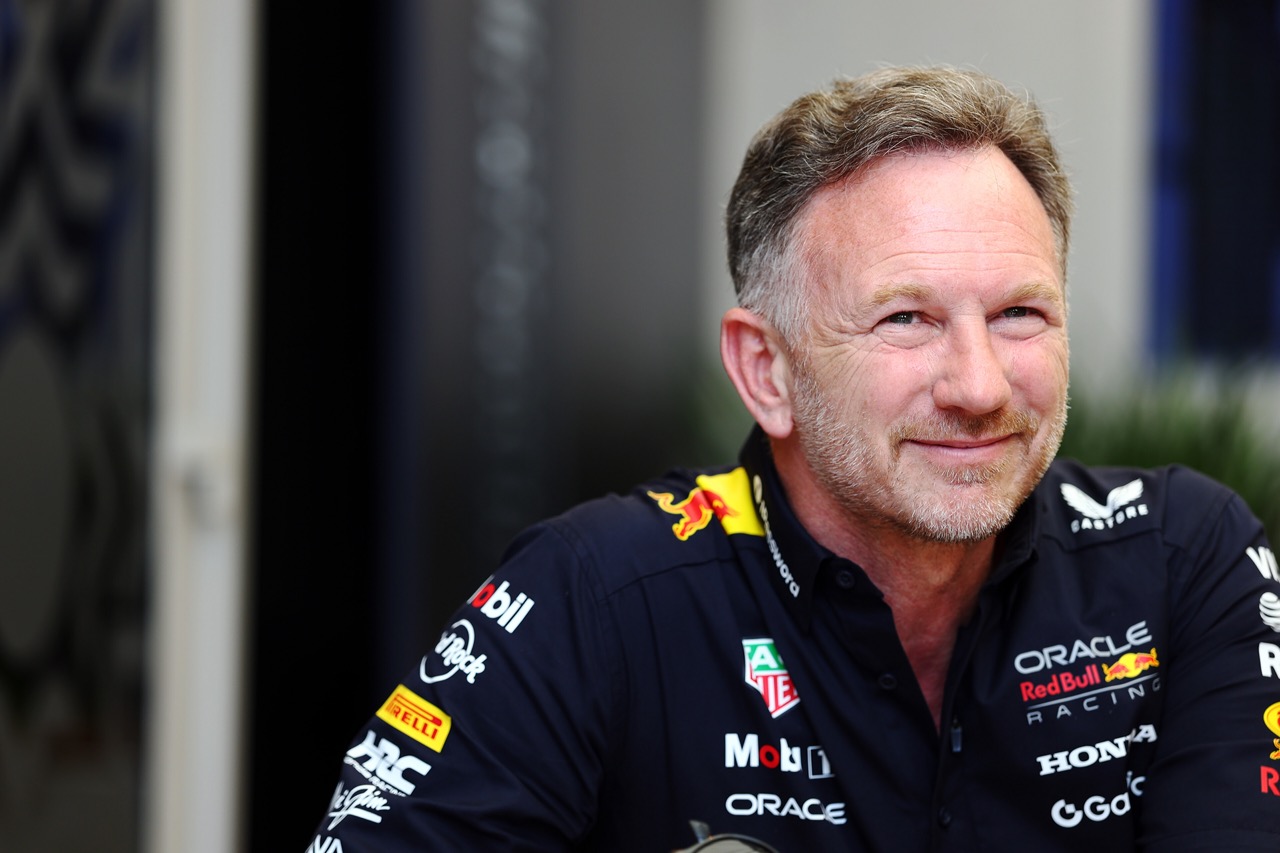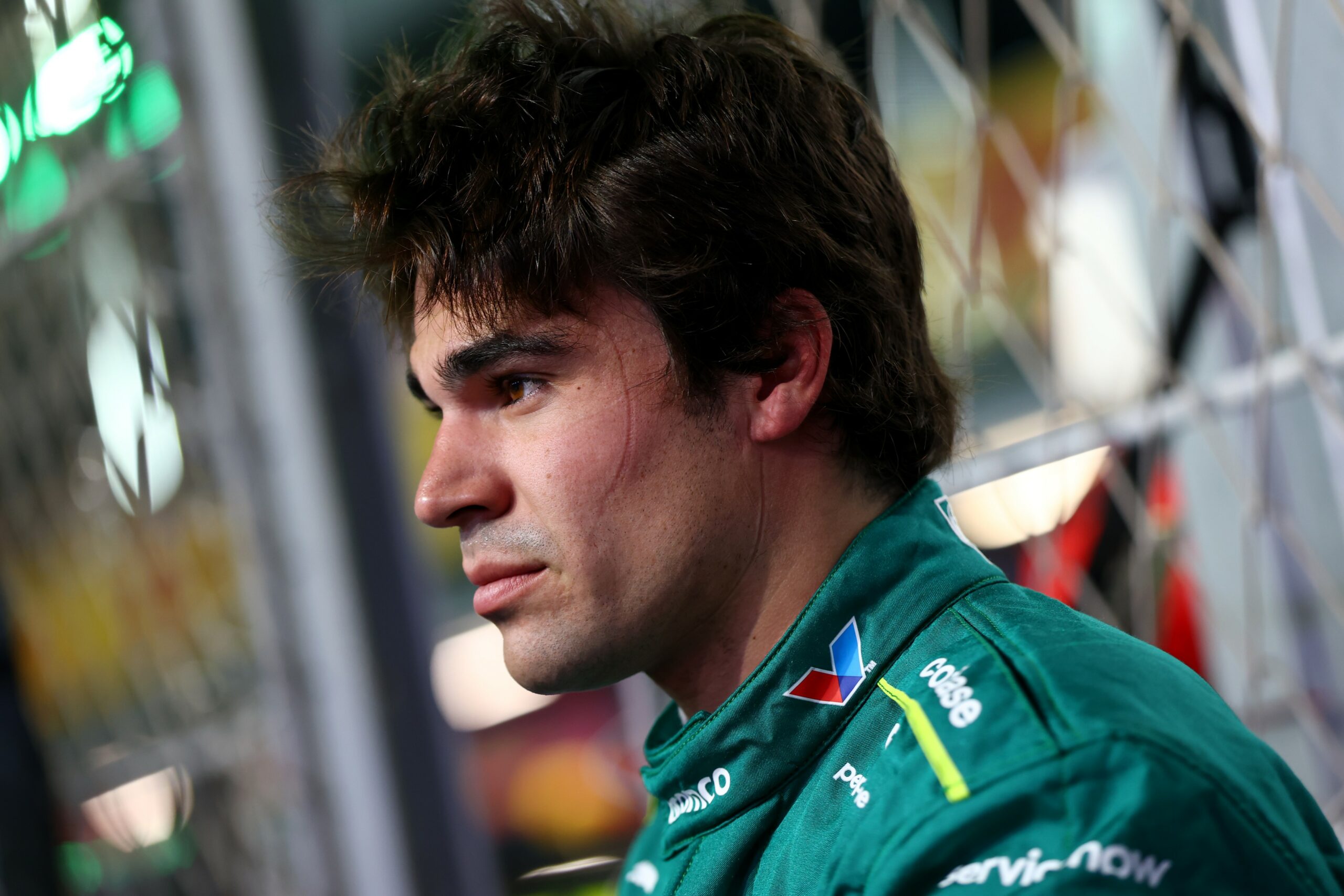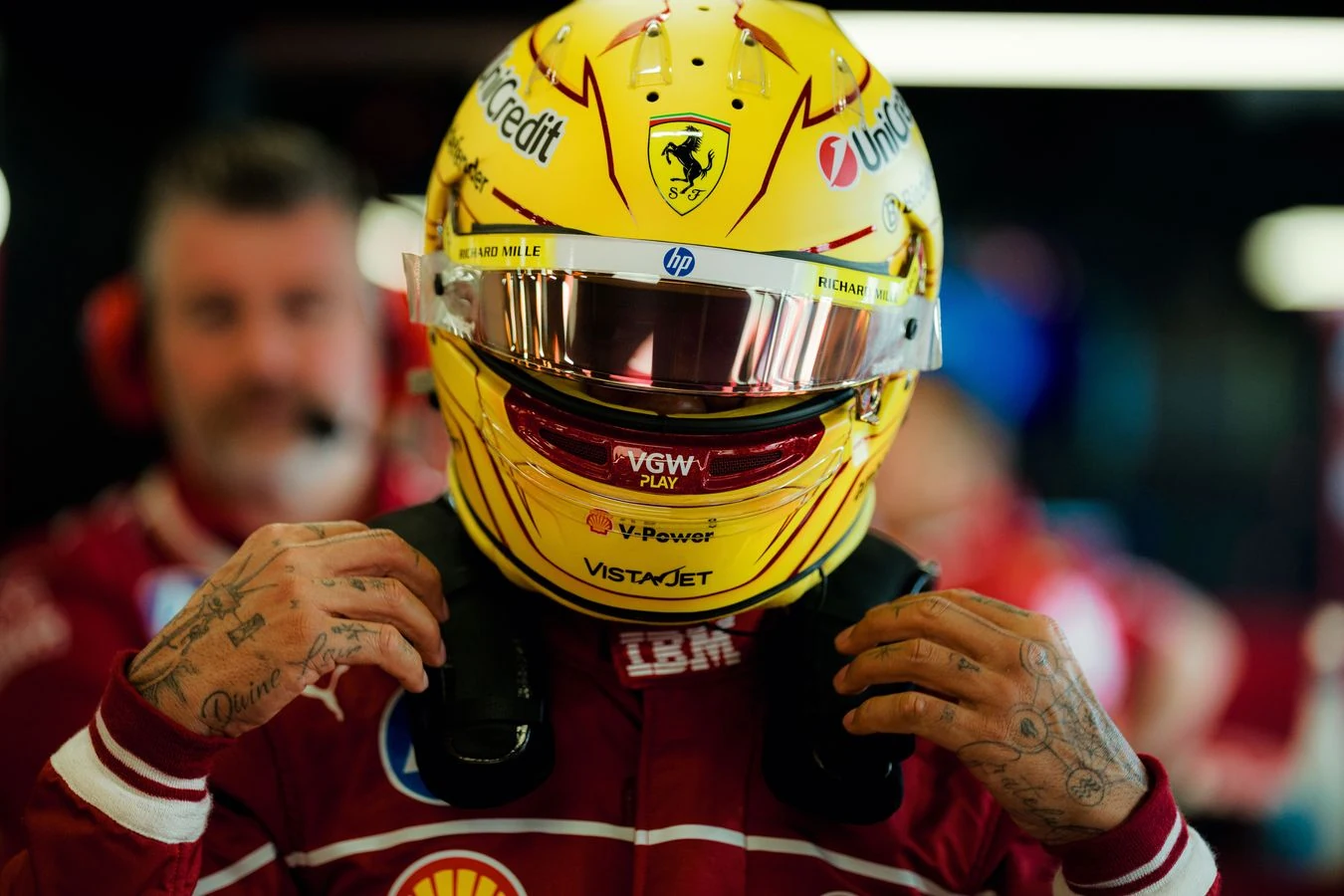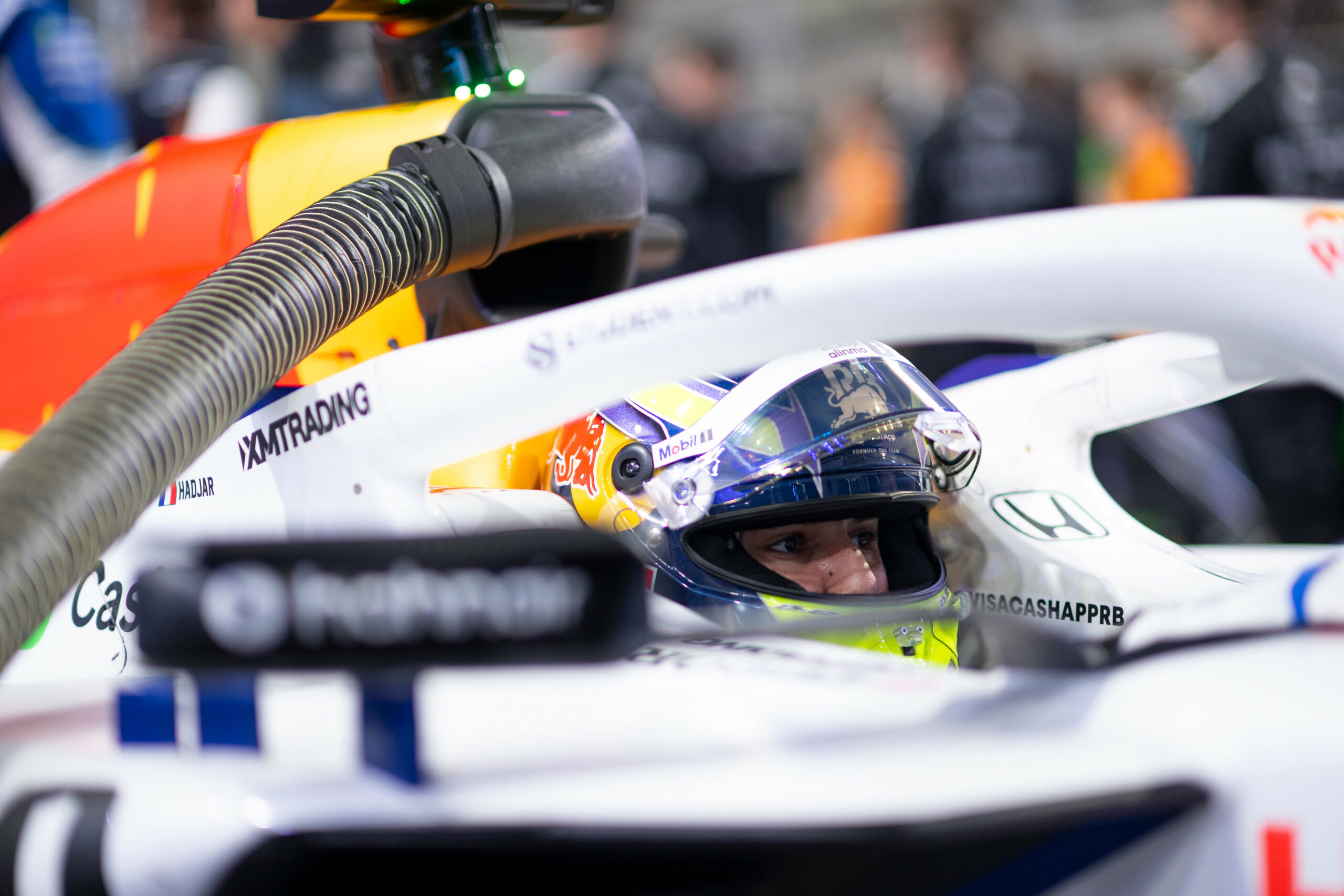In the second part of our exclusive interview with Juncos Hollinger Racing driver Callum Ilott we discussed his great comeback drive in the 107th run of the 500, and how to deal with challenging moments on a personal level.
Neither the April tests nor the practice week before qualifying had been positive for Ilott, who was significantly off the pace of the rest of the pack and at times struggling to keep his car on track:
“It was not an easy time,” the British driver admitted.
“Probably one of the most stressful scenarios I’ve ever had in my racing career because, you know, I think it would have been stressful anyway if it was a road course, I was just struggling with the car.
“Take Formula 1 as an example, very recently with Charles [Leclerc] in Spain. He had a problem and tried to communicate that, and you can see that it was not easy, it was stressful, but it was two, three days maximum.
“Yeah, it was not ideal. For me it was a couple more days and it was also at 230 mph, which is not the nicest feeling ever, and I did not enjoy that.”
In spite of all the effort and analysis done by the team, speed was nowhere to be found, as even during Fast Friday with the engine amped up he was the only driver with a fastest lap not able to reach 230mph.
“It was not an easy time mentally because every day you are kind of coming with the hope that it would be better and it wasn’t, and then you need to continue the day trying stuff, and you know at any moment it could kind of go wrong, when you try something too big or take too much of a swing at it, and it could really, really feel bad.
“The other thing with it, with ovals, is that normally what they say is that if it doesn’t sit right, you just come in the pits, every time it doesn’t feel right you just come in and you look at it. Every session it didn’t feel right, and I had to keep going out on trying… Yeah, that takes its toll,” Ilott recalled.
After running dead last in the majority of the practice sessions leading up to the qualifying weekend, the team decided to opt for a last minute car swap with two hours to go to the end of practice on Friday.
The new car, which had been driven by his teammate Agustin Canapino in the April test, was ready to be tested in the final Saturday morning practice session after a long night of work for the crew:
“And then of course we made the decision to change the car, go out for qualifying and then you have another completely difficult task because when the car is completely different, all the tiny little things affect it so much at 230mph, so there was a lot of fine tuning that took place.”
Ilott ended up qualifying directly for the main event, even without having to pass through the Last Chance qualification on Sunday. However, it wasn’t the end of his car troubles:
“Luckily it worked for qualifying, luckily we got it to work, so that was super rewarding, to firstly get in the race. And then I actually had quite a challenging time to take the race car to work, so the Monday and the Friday of Carb Day I really, really struggled to get the race car working well, and I still would say it wasn’t a good race car, but we managed to make it work on the Sunday.
“I moved from 27th up to 12th in the end, and that was super rewarding for me, super rewarding for the team, and not an easy thing to do after everything we had,” a very satisfied Ilott concluded.

Photo credits: Penske Entertainment | Chris Jones
Asked on how he deals with mentally and personally challenging episodes such as the many difficulties encountered during the month of May or the social media abuse he had received after the Long Beach race, the 2021 Le Mans podium finisher mentioned the importance of having a good support network of close people:
“It’s massive, but it’s difficult though to understand what works best for you, because at the end of the day we are all still learning, and there are still some things for me that you still discover and you learn about yourself.
“We all deal with things very differently, that type of stuff… without having those kind of experiences you don’t learn how you deal with it, and even when you do learn how to deal with it, you don’t necessarily deal with all the things in the right ways.
“So yeah, it’s important to have that support, but it’s also important to learn and listen to people. And of course not everyone has been through the same scenarios, but they can understand some things. I think as well the world is definitely a strange place with media and all of that.”
Going into further detail on receiving death threats after the Long Beach, where he exited the pit stops in front of Canapino leading the race and unintentionally slowed him as he tried to avoid going a lap down, Ilott mentioned not being too fazed by it:
“It’s a weird one, because the external stuff like that, people’s opinions, don’t really affect me much. Once I kind of understood the situation it was quite easy to make sense of it, and then you just kind of go like ‘oh ok, this was just caused by one person’, and it’s just interesting how one person can influence things like that.
“And of course if it’s one person it’s very easy to put the blame and just go: ‘Ok, you are an idiot or whatever, not my problem’.”
Definitely more challenging from his point of view was the car situation and how it was misbehaving ahead of ‘The Greatest Spectacle in Racing’, as he had no choice but to try and power through the issues in order to try to improve its pace:
“But then, with other things maybe like the 500, that was a personal journey where each day presented new challenges and stuff that you had to keep trying to push through and go through, and yeah, in the end it was rewarding to go through it.
“But at any time you could say: ‘You know what? I give up, I’m done, it’s not working’ or whatever, and that’s when it’s important to have people to keep pushing you, to keep pushing you through it and behave in the right way, because you never know at what point it turns around or where it’s going.
“I know some people resort to it a lot, but I don’t think the support from a media point of view helps that much. Obviously negatively it can ruin you in that sense, if you have go a lot of negative influence or support on the media side, and definitely if you are reading that sort of stuff that’s not good for you.
“But the positive side I find very difficult to help maybe a little bit, but that’s where you need the people physically and around you talking to you, because one thing is reading something, and the other is hearing it and speaking through it.”
Communication and in person dialogue are very important to the British driver sitting in P14 in the standings, he explained:
“That’s what is important for younger people today. Like, I’d much rather, instead of reading that people think I’m a good driver and a great person, I would rather hear that one on one from someone, not that everyone can tell you that or whatever, but to be able to go out and seek that, or try to find a way to be part of a conversation person to person about anything you are struggling with.
“And of course not everyone is the same, and not everyone is going to give you the response you want. I know whenever people ask me I give them a very realistic approach. Some people don’t like that, some people do, and they may not like it within the space of an hour, but three hours later will come back and say ‘oh, you know what? That actually made a lot of sense, I’m sorry I didn’t take it so well to begin with’. Again, it all depends on the people, but you just have to find people you trust.
“I think sharing is important, and working through your problems because you can’t solve everything, you only know what you know and you don’t know what you don’t know, and that’s it.”




